And now for something completely different...
It's a bag of xiaobing
There are several good eBay shops set up to sell pu'er. Following the (much deserved) success of
Yunnan Sourcing, and subsequently that of
Dragon Teahouse, we now have
Yunnan Colourful (occasionally bizarre),
Sampan (a Canadian seller with some quite old but quite pricey stock),
YUM! tea (seemingly quite expensive),
Red Lantern (currently selling my favourite
2004/2005 Changtai "Yiwu Zhengpin" for a very reasonable $34, and five bricks of 2005 Baoyan for a fine $41), and
China Chadao, the subject of this article. There are one or two others who have slipped my mind at the moment. Please do add a comment if you have someone in mind that I've neglected.
(Addendum:
Western Yunnan Tea, who seem slightly cheaper than even Yunnan Sourcing at first glance, and
Pot in Pot. Thanks, P K!)
Competition is healthy, but no-one's going lower than the Yunnan Sourcing (YS) / Dragon Teahouse (DTH) approximate consensus, and so there's not a huge amount of competition at the bottom end. With Yunnan Sourcing's substantial discounts on postage, it often works out similarly expensive to buy from YS or from Taobao. The other vendors, to my mind at least, are a bit behind this curve, and YS continues to dominate the low- to mid-end market for unaged cakes. (I use Taobao for finding 5-year cakes and older, as Western vendors tend to mark up slightly aged cakes much more than Mainland vendors.)
Tangentially, I notice that DTH is selling this year's 7542 for $22, which is double the approximate-Western-consensus price from last year of $11, despite Taobao prices for this year's 7542 being within 10 RMB ($1.50) of last year's price. Given that 7542 is made from leaves including those of previous years, one couldn't even use the Yunnan drought that has affected the 2010 crop as an excuse for a 100% rise in price. I certainly hope that the other vendors will be closer to the Taobao price than the DTH price, much as I love DTH tea!
The seven cakes are tasters of some of the usual mountains. Dayi shown for scale.
This bag of seven xiaobing [hsiao-bing, "little cake"] came from China Chadao, where each sells individually for around $8-12, excepting the "Lao Banzhang" (LBZ), which sells for over $30 - presumably corresponding to the famously high price of LBZ maocha. I don't usually invest in LBZ, given that I don't agree with the manner in which they conduct business - a trend which, although usually highly unpleasant, has apparently
become significantly worse this year. I like the odd sample of laoshu [old tree] LBZ when I am fortunate enough to come across it, but the combination of high prices and disreputable practices keeps my funds elsewhere.
Given that xiaobing are so, well, "xiao", I tend to treat them as being large samples. "Taster cakes." It would be difficult to find enough space to store zillions of these tiny little things, so I don't hold onto them for too long, and have no qualms about finishing them up. Each is 100g, and so you might get 10 or so sessions from a cake, depending on how much leaf you use. Even at the high unit price of $32 x 4 = $128/400g, the xiaobing treats the wallet just the same way as a sample, and so I can forgive $3 / session in such small quantities. Indeed, it's less than a pint of beer or a Starbucks cream-and-sugar, coffee-flavoured beverage.
The Douji-style seal on the back is a real pain on xiaobing! It results in total wrapper destruction.
Let's start at the top, I figured, and dive straight into the LBZ. The brand "Zhimingdu" [djer-ming-doo] is a pun, meaning "well-renowned tea" but alluding to the phrase for "well-renowned brand/name".
I am a collector of good Chinglish, which is becoming hard-to-find. Thankfully, Zhimingdu do not disappoint.
The leaves, shown below, are small-to-medium, and well-defined with plenty of fur. The scent is a touch reserved, but otherwise the fruity-sweetness one might expect from LBZ. The compression is tight without being the nuclear-fusion level of compactedness that characterises "tiebing".
Appealing leaves
This tea promises good things. The initial scent in the aroma cup is big and bold, sweet and full, just as you'd hope from LBZ. It lasts an age in the nose, and has plenty going on inside it. The first infusion is a dazzling mixture of sweetness, tartness (that makes the mouth water), and the grape-like fruitiness swimming along on top that reminds me of LBZ. It is clean and good, with a long-lasting huigan.
That's the first infusion, however.
Not really visible in this image, the soup is tinged with a lovely, fresh green
By the second infusion, the rest of the leaves in the blend wake up. It turns into a cereal-like, tart oddness that isn't really LBZ. You can taste hints of the good leaves in the blend, but they are muddied and confused by the rest of the mixture. It reminded me of a beautiful classical flute trying to make itself heard in the middle of a jazz band.
The leaves are wonderfully green - no overcooking here
Imagine my happiness when, by the seventh infusion, the blend-leaves ran out of steam, leaving only the continued excellence of the potent LBZ leaves beneath. By the eighth infusion, it had become the clean fruity sweetness of good LBZ, albeit dilute. The jazz band eventually ran out of puff, leaving the solo flute to be heard.
A fun session. It bodes well for the less expensive xiaobing in the set.
(The China Chadao web-site also lists a 2005 Xiaguan for a very reasonable $30-or-so, which I rather like the look of. These 5-year cakes really pull on my heart-strings, and it's nice to find a vendor that hasn't marked them up too much.)

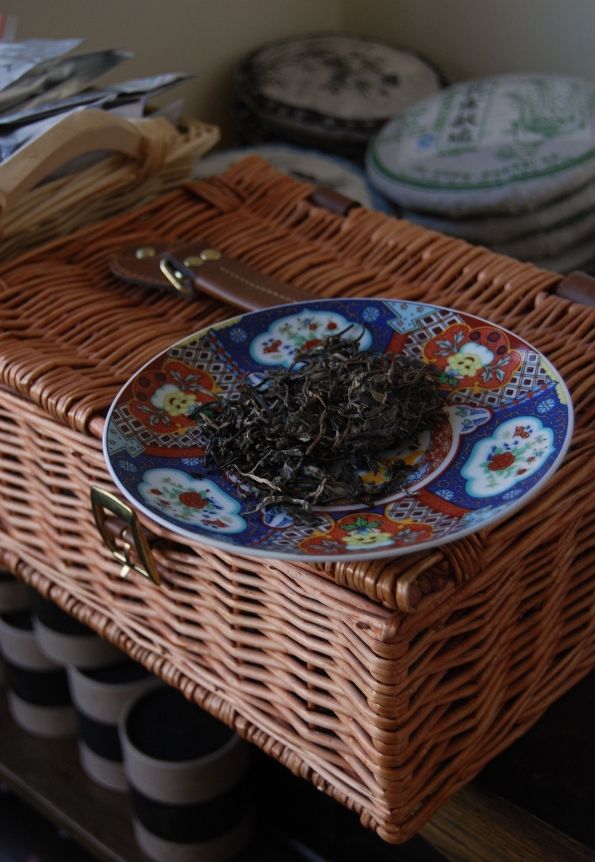
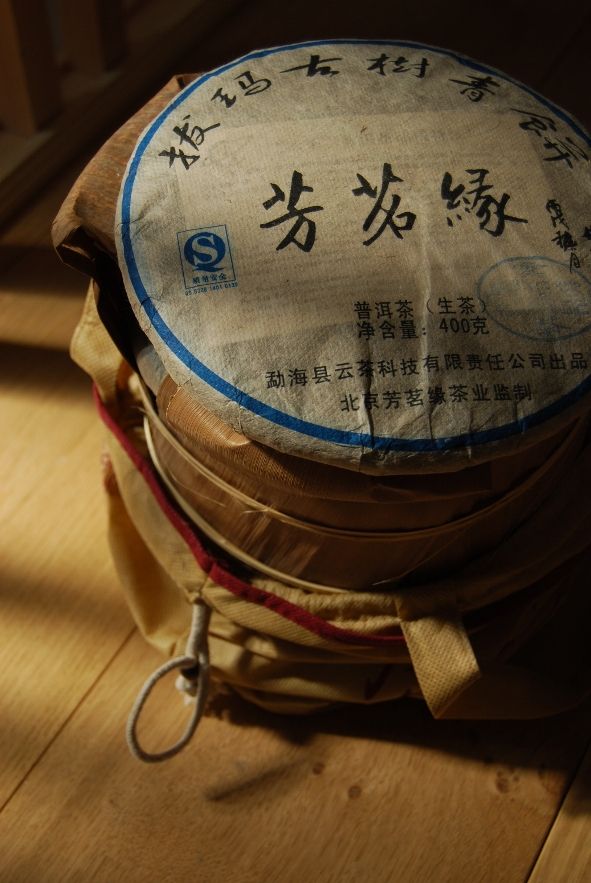
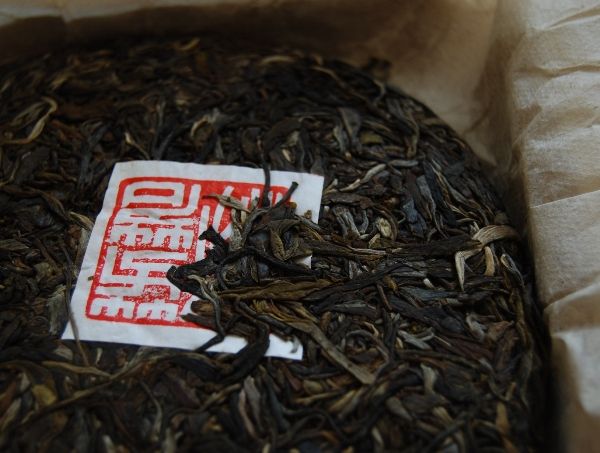
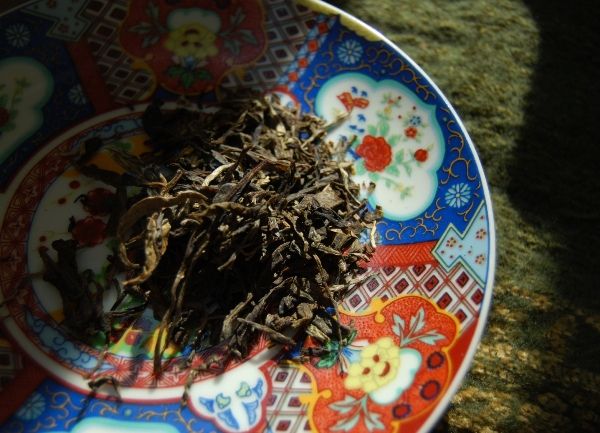
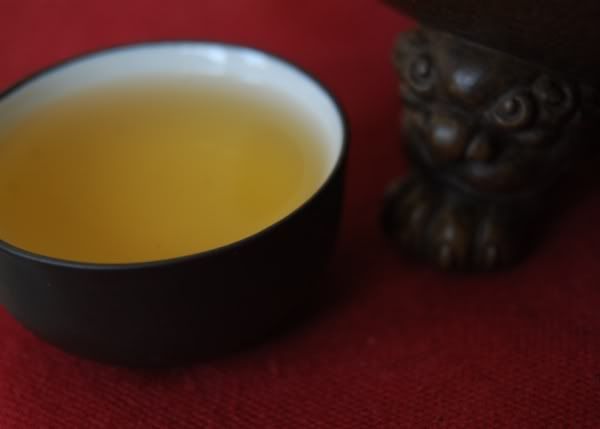
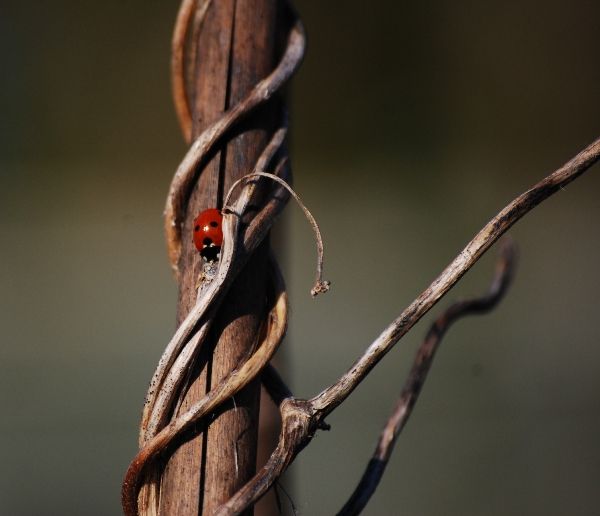
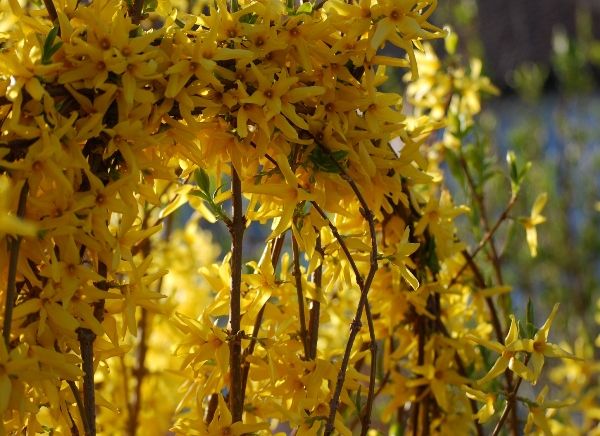
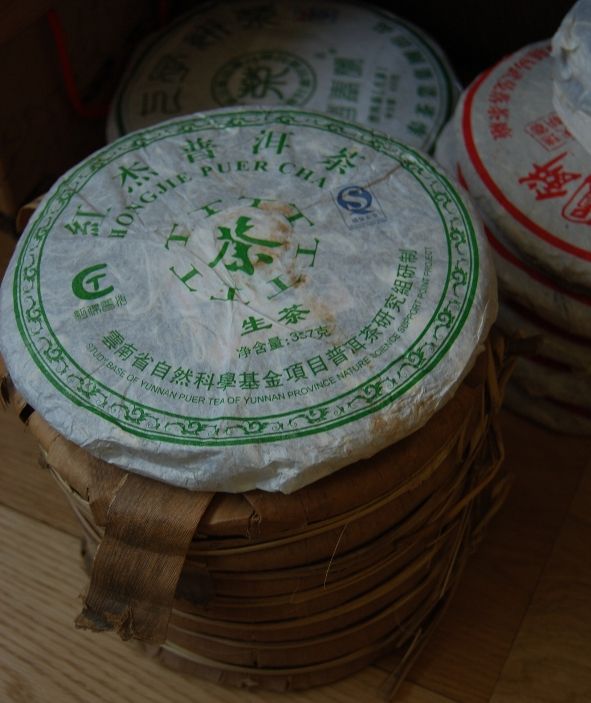
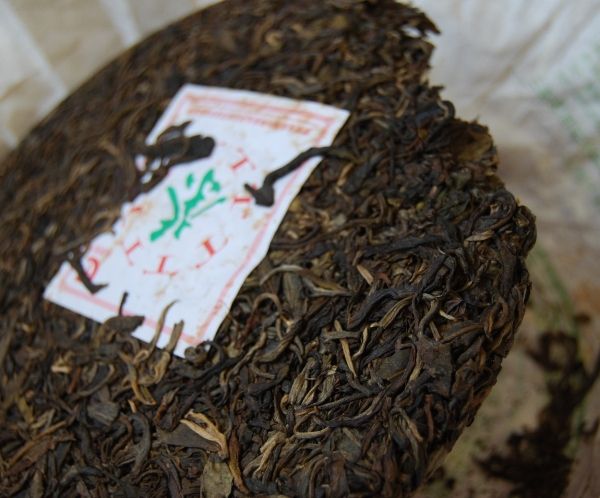
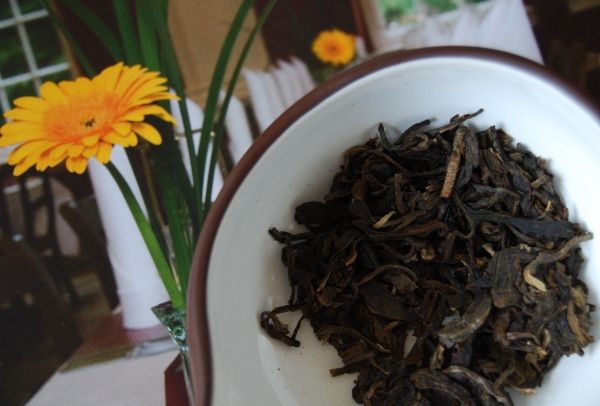
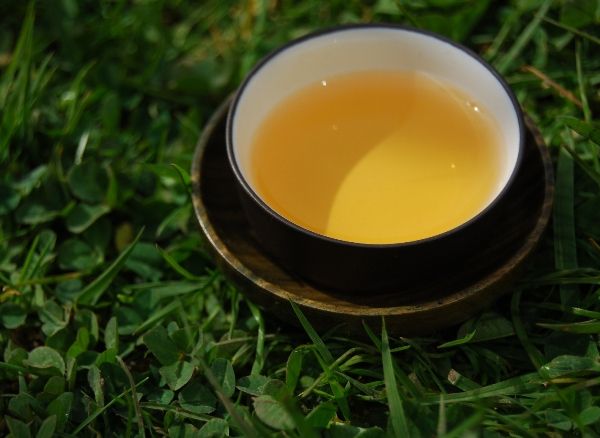
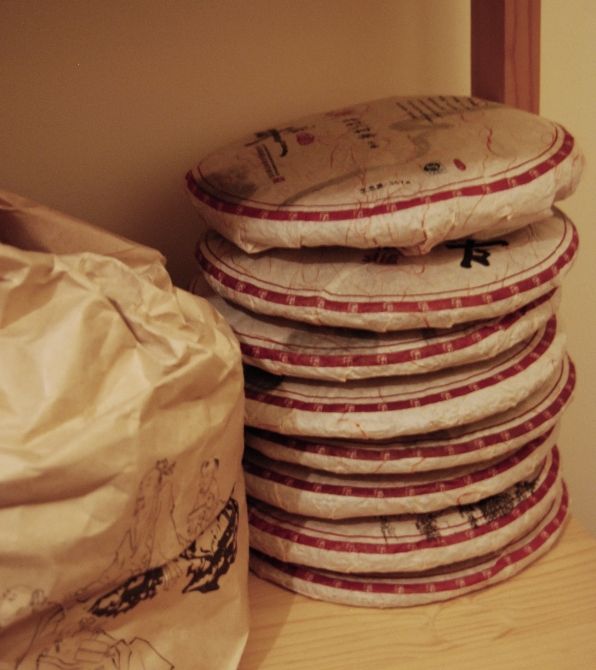
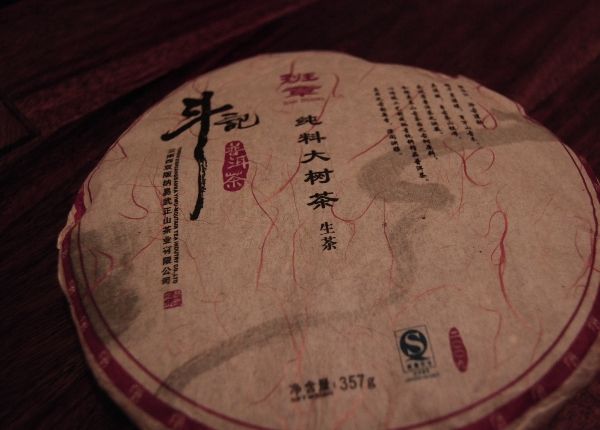
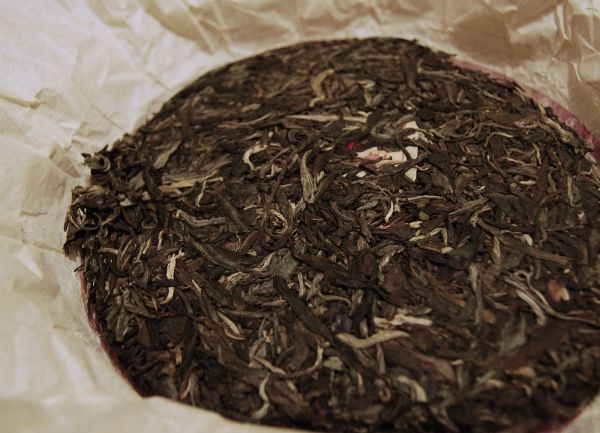
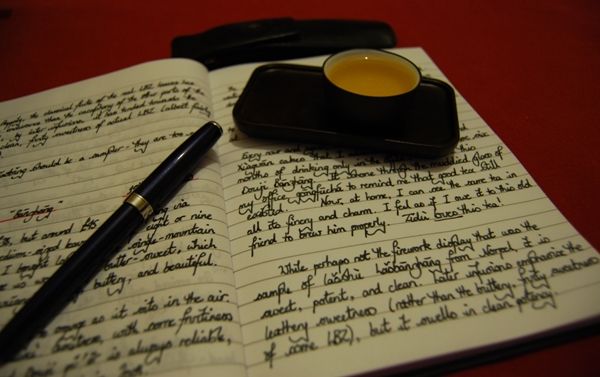
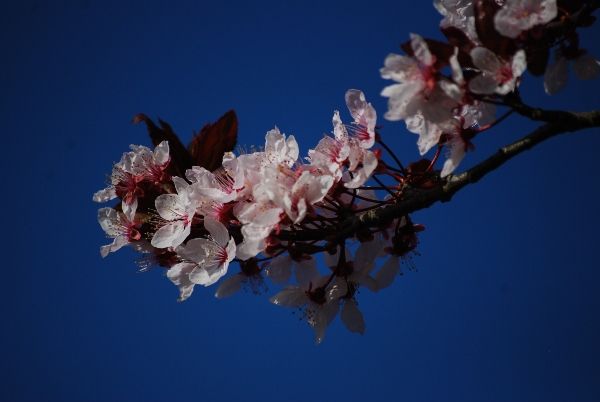
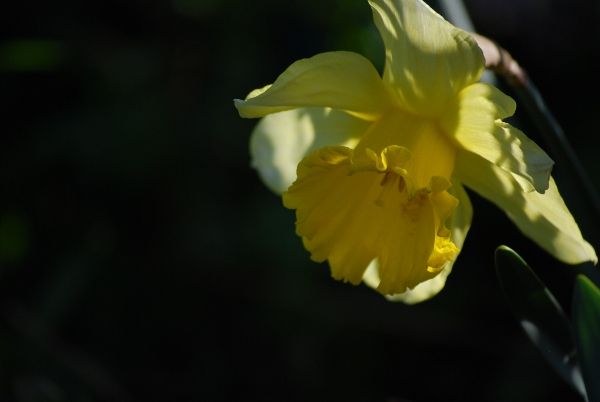
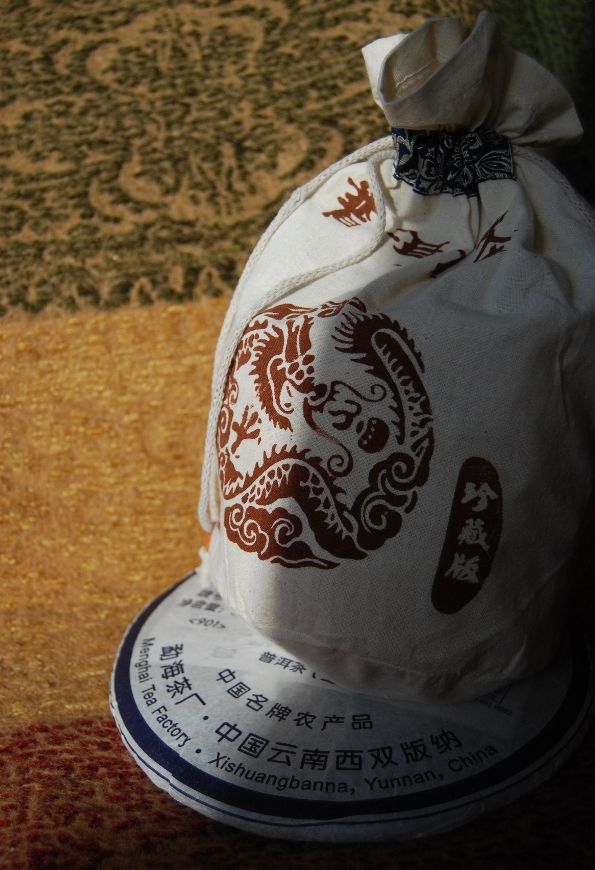
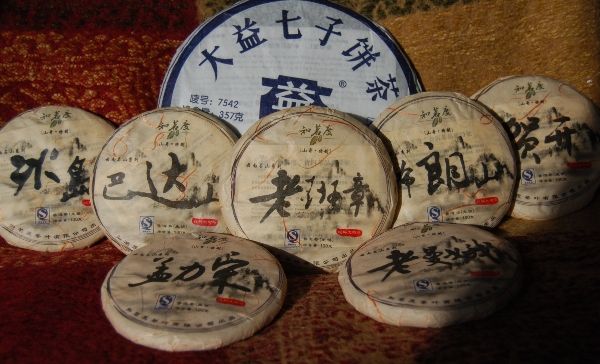
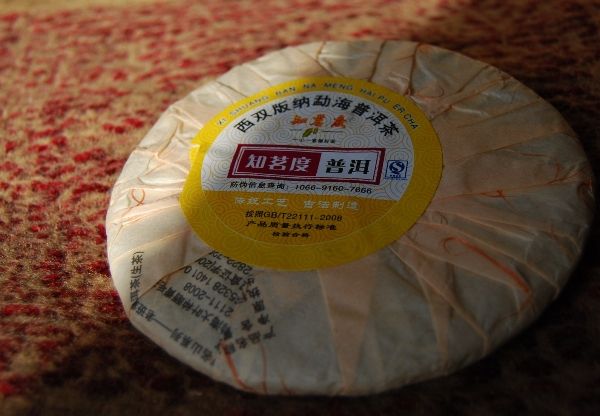
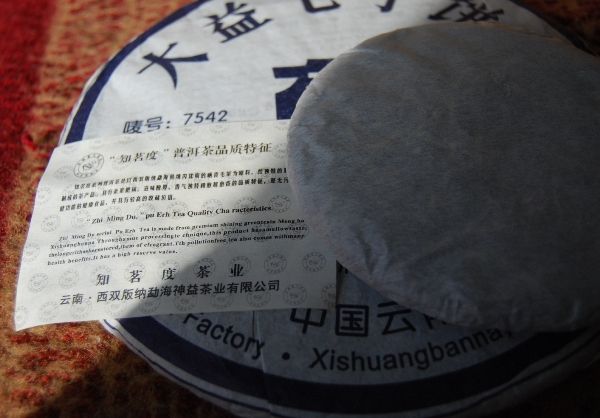
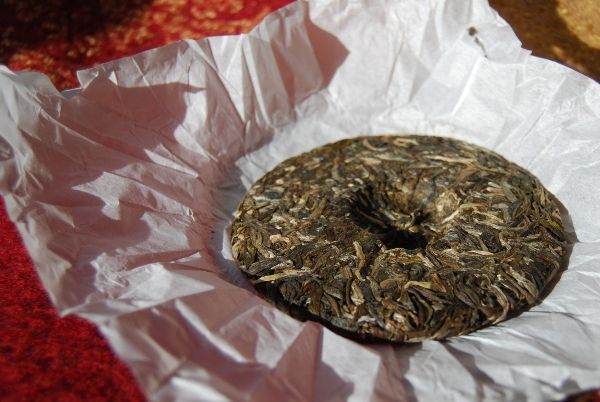
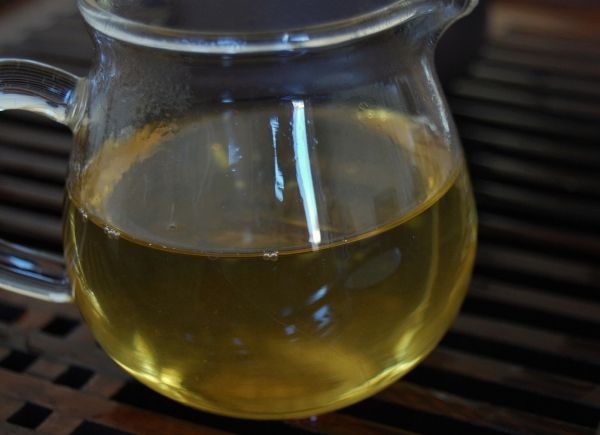
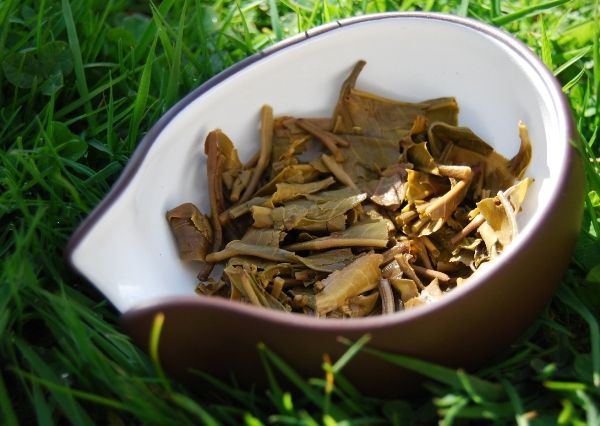
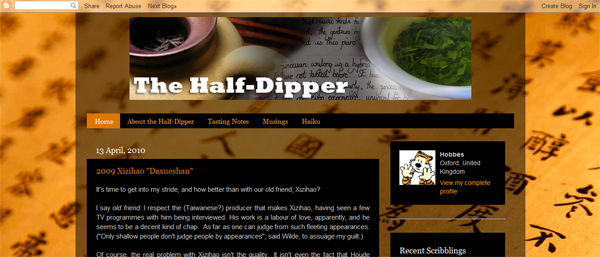
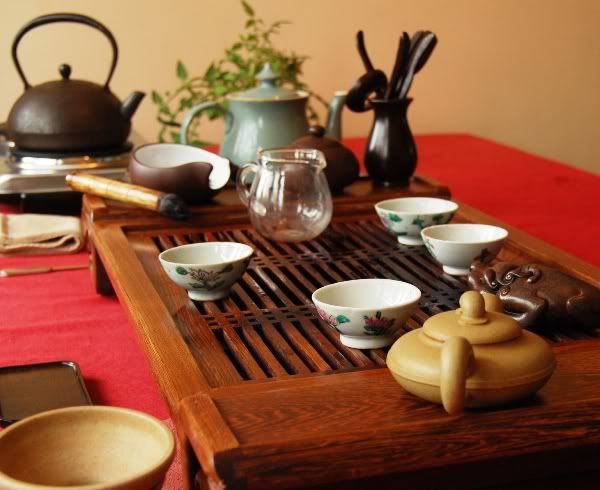
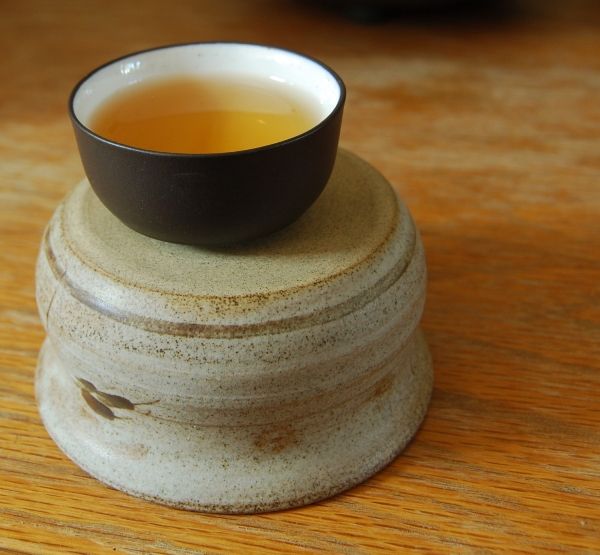
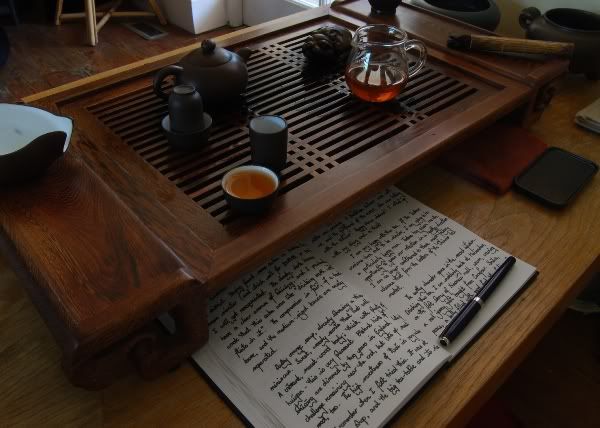
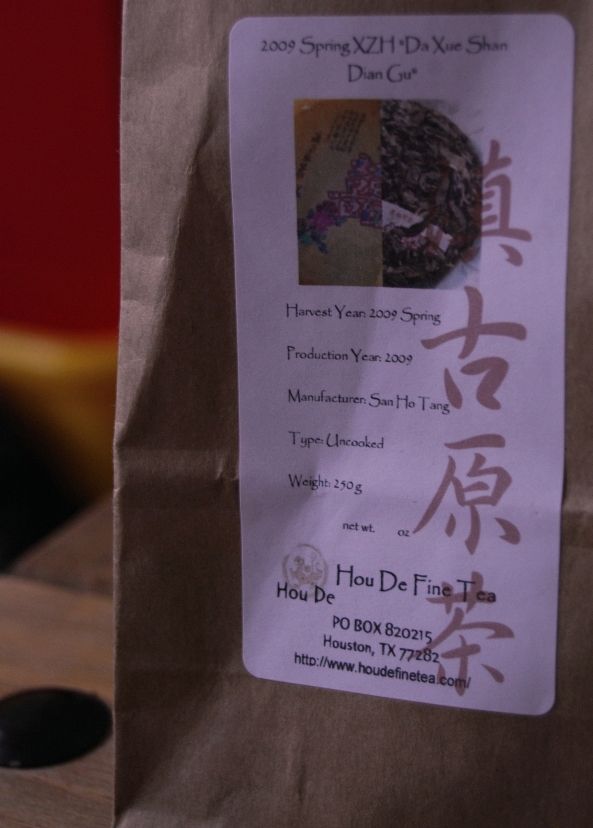
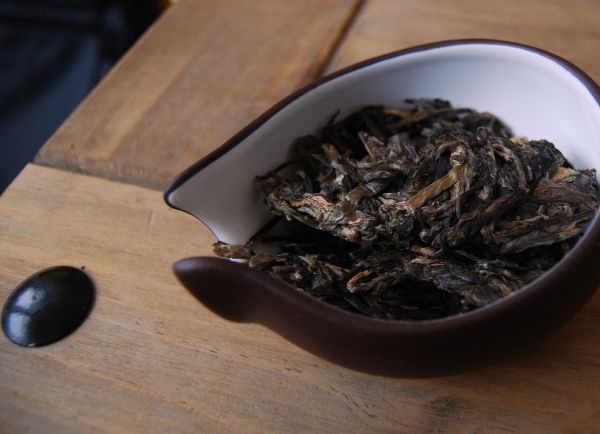
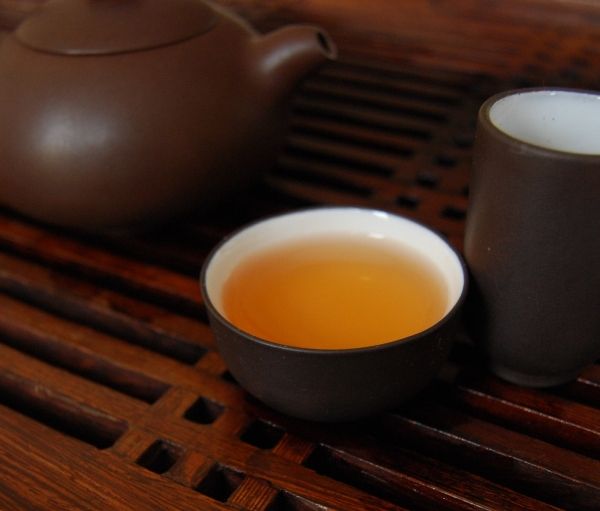
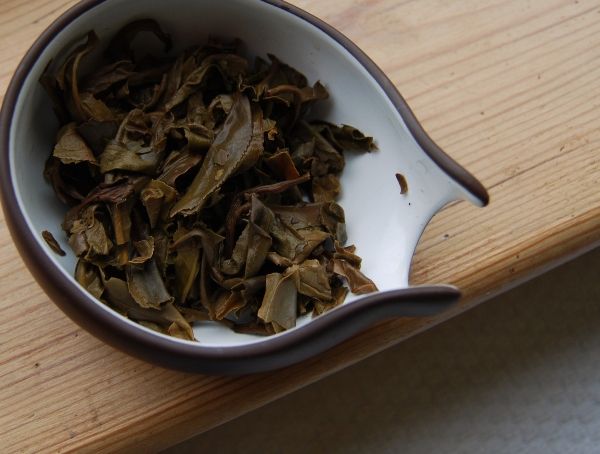
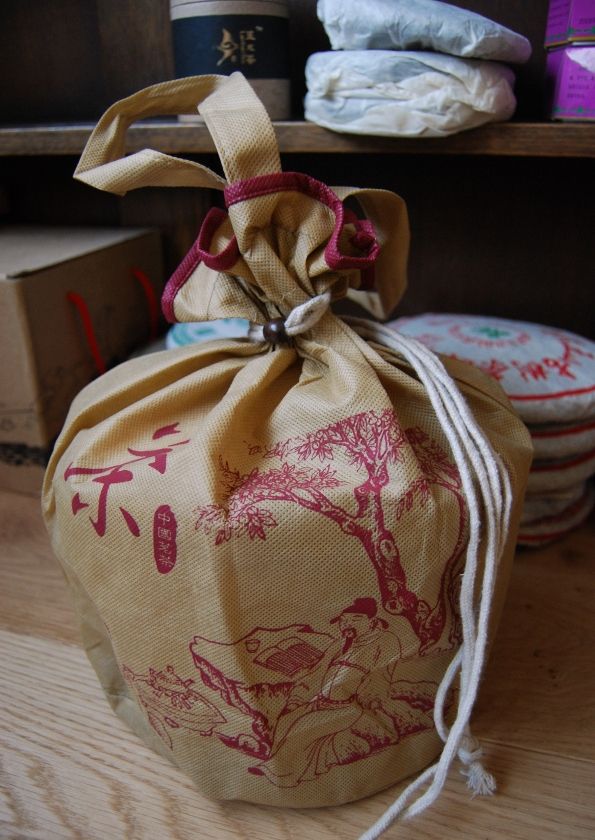
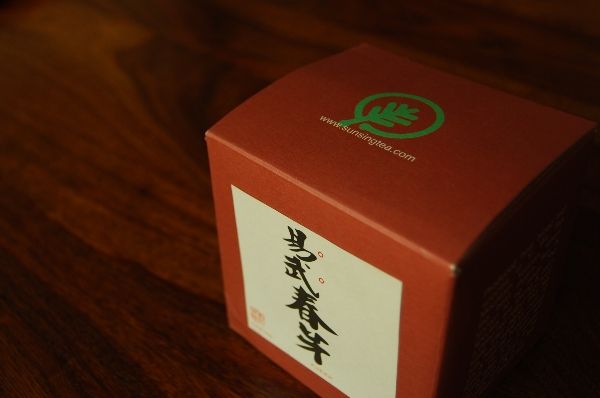

Of course, the reason for singling out this particular comment for special treatment is that it explicitly states the author's belief that I am happily "shilling" for Nadacha / Essence of Tea, and hence requires a more full and public response, as I'm sure you'll understand.